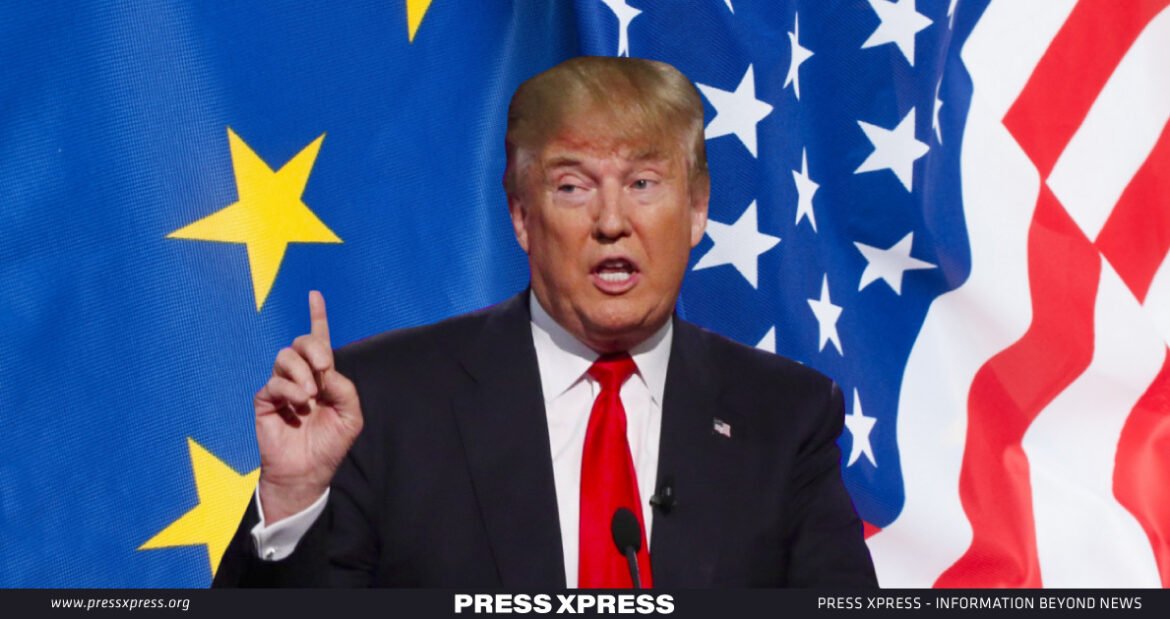Key highlights:
- Facing historic challenges and economic strains, European nations, committed to NATO, elevate defense spending to 2% of GDP, totaling $380 billion
- The European Defense Fund (EDF) proposed a substantial boost of €625 million for 2024, with an additional €45 million allocated for military mobility
- The US presently contributes 70% of NATO’s overall defense expenditures, a significant increase from 61% in 1990
Amid a global democratic surge with an expected 2024 voter turnout surpassing two billion, political leaders globally pledge significant foreign policy changes alongside domestic priorities. Notably, in the United States, the election’s impact reaches beyond national borders, influencing international relations and military aid worth tens of billions.
The potential reelection of Donald Trump triggers reactions in Europe, prompting calls for increased defense spending from European diplomats. Facing historic challenges and economic strains, European nations, committed to NATO, elevate defense spending to 2% of GDP, totaling $380 billion.
European capitals echo with urgent calls to reinforce defense budgets, driven by dual purposes: preparing for potential shifts in American foreign policy under Trump and addressing regional challenges.
Despite economic concerns, the European Defense Fund (EDF) proposed a substantial boost of €625 million for 2024, with an additional €45 million allocated for military mobility. As the November US presidential election approaches, officials suggest Europe should reconsider its significant reliance on the US for defense matters if Trump secures victory.
The US in NATO: A Financial Powerhouse?

The US presently contributes 70% of NATO’s overall defense expenditures, a significant increase from 61% in 1990. As of autumn 2023, the US is the primary contributor to military aid for Ukraine, providing €44 billion. Europe heavily relies on the US’s nuclear umbrella for deterrence, as French and British nuclear arsenals individually amount to less than 10% of the US holdings.
In terms of military capabilities, the US possesses 1.8 times more fighter jets than the combined fleet of all European NATO members and is the sole developer of fifth-generation fighters in NATO. Additionally, the US outnumbers Europe in major arms producers, with 40 of the top 100 located in the US, while Europe has 26.
American arms manufacturers generated $300 billion in 2021, nearly three times the combined output of all European defense firms, emphasizing the significance of industrial capacity for arms and ammunition production in deterring and managing conflicts.
Also, over the past few decades, European nations capitalized on the peace dividend by reducing defense spending and reallocating resources. The cumulative peace dividend is €1.8 trillion, falling short of NATO’s 2% target, with an investment deficit of €0.6 trillion, below the 20% rule. Among the 5 largest European economies, only France and the United Kingdom did not accrue any peace dividend assuming the NATO 2% target is sufficient.
Conversely, Germany, Spain, and Italy have annualized peace dividends ranging from 8 to €20 billion. Since 1991, Germany alone has accumulated a peace dividend of €680 billion and an investment deficit of €230 billion, constituting more than one-third of the total for European NATO members.

Can Higher Taxes Save Defense Budget without Stifling Growth?
Raising taxes could address low defense spending and high government debt, but European nations already have substantial tax collections. In 2021, European NATO countries averaged 38% tax revenue relative to GDP, 7 percentage points higher than Asian nations and 15 points higher than American peers in the Organization for Economic Cooperation and Development (OECD).
The constancy of tax revenues indicates European governments tapping into an expanding, inflation-adjusted funding pool, fueled by economic growth. This growth allows expansion without imposing additional burdens. However, raising taxes may risk competitiveness and growth, as European taxes are already elevated and have increased by three points since 2010.
According to the global Economic Expert Survey, 27% of European economists see taxes negatively impacting their countries’ attractiveness, while less than 10% in the United States or Asia cite taxes as a deterrent.

A Shift from Defense to Welfare
Social spending currently constitutes the predominant allocation of funds by European governments. On average, half of the governmental budget in Europe is dedicated to social expenditures, encompassing subsidies for pension systems, income redistribution to low-income households, and support for the unemployed. This shift in spending priorities explains the significant departure from the Cold War era, where a substantial portion of the budget was allocated to defense.
The correlation between the size of the welfare state and meeting the NATO 2%-target is evident. Among the 10 countries with the highest proportion of social spending relative to GDP, only 2 meet the NATO 2%-target: Greece and Finland, the latter having recently joined NATO.
Notably, the Baltic states, characterized by both low public debt ratios and high defense spending, are among the countries with the lowest social expenditure in Europe. In 2022, social spending ranged from 17% to 32% of GDP (equivalent to 35% to 59% of government budgets), leaving limited fiscal resources to tackle current economic, environmental, and security challenges.
Given this context, governments may find it challenging to avoid implementing fiscal discipline and re-prioritization. While the imperative to deter war and protect citizens from external threats, as well as address environmental concerns, necessitates social acts, the historical trend reveals a greater propensity for European governments to expand rather than curtail the welfare state.
The year 2024, holds significant importance for Europe’s future security framework. The ongoing conflict in Ukraine persists, and the potential threat from Russia to NATO members may intensify based on the developments in the Ukrainian theater. Concurrently, the actions of the next US president which everyone assumes would be Trump, could escalate pressure on Europe to increase defense expenditures while potentially reducing or discontinuing military assistance to Ukraine. To establish and maintain peace in an increasingly complex geopolitical landscape, it is likely that defense spending will need to be sustained at elevated levels for an extended period.


